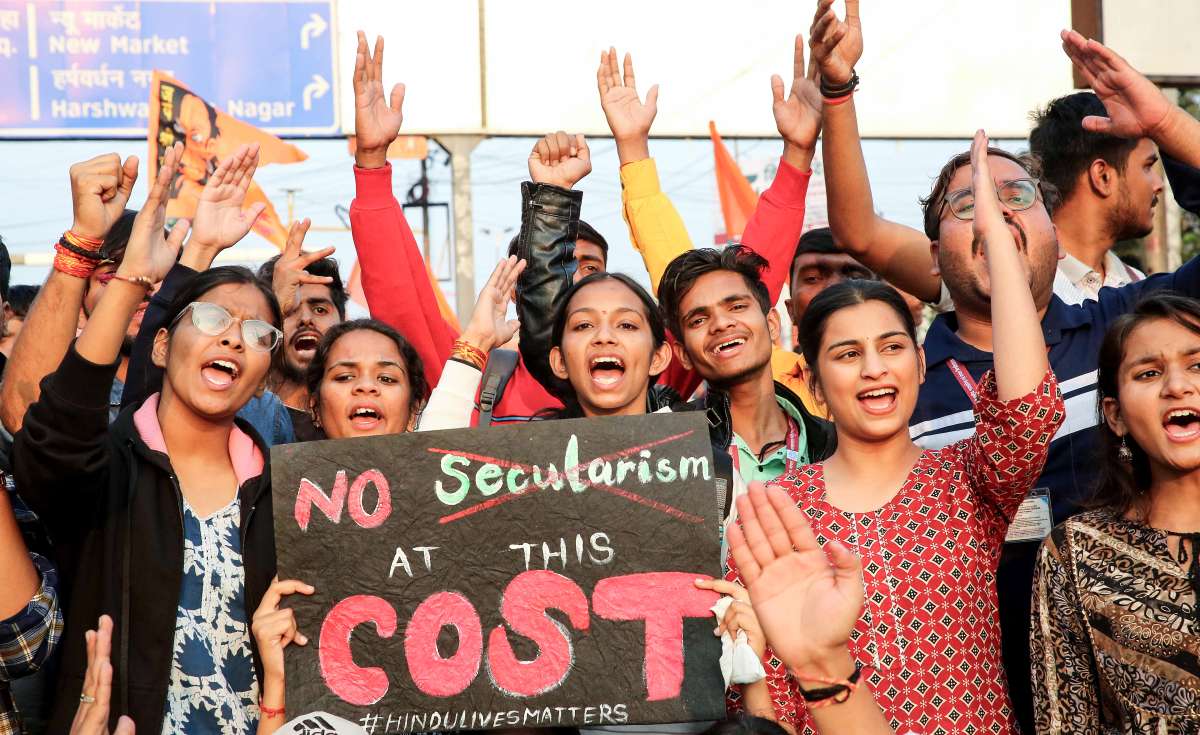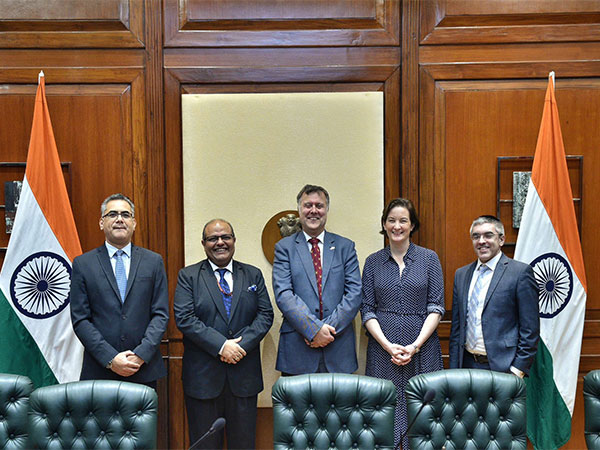The Grand Sumo Tournament will take place at the 153-year-old venue in partnership with the Japan Sumo Association, Nihon Sumo Kyokai, to help mark its centenary….reports Asian Lite News
London will host only the second professional Sumo wrestling event ever staged outside of Japan at the Royal Albert Hall next October. The Grand Sumo Tournament will take place at the 153-year-old venue in partnership with the Japan Sumo Association, Nihon Sumo Kyokai, to help mark its centenary.
The only previous occasion when Sumo has been hosted professionally overseas was in 1991, when the same venue staged a five-day “basho” before a sold-out crowd and which was broadcast nationally in the UK.
“Good things come to those who wait,” the Royal Albert Hall’s chief executive, James Ainscough OBE, told the PA Media news agency. “We’ve tried a number of times but various things have got in the way, not least Covid.

“We have our own timetable of shows here, Sumo tournaments in Japan have their own rhythm, so finding a moment for our timetable and their rhythm to coincide has taken this long. But we’re absolutely thrilled to be bringing it back in 2025.”
The 1991 event, staged as part of that year’s Japan Festival in London, was a technical feat for organisers. Wheelbarrows were used to transport specialist soil to Kensington in west London from a site in Heathrow, while adaptations had to be made to the stage area to ensure it could bear the impact of the competitors as they wrestled.
“The fact they’ve chosen to come back when they could have gone to any capital city around the world is quite an honour, particularly for us here at the Royal Albert Hall,” Ainscough continued.
“To find something like Sumo, which isn’t just a sport but is a cultural moment, has a great tradition and ritual attached to it, it makes it even more interesting.
“We’ve had wrestling and boxing here at the Royal Albert Hall for well over 100 years, but Sumo is a completely different level and nature of sport and that’s why it’s such a fascinating thing to bring here.”
Sumo is considered more than just a sport in Japan. There is a ceremonial-religious aspect that dates back more than 1,500 years, with competitors living almost monastic lives in “heya” stables, where they observe strict and highly restricted lifestyles.
Forty of Japan’s top wrestlers are expected to travel to London to compete across five days from 15-19 October. The winner of the 1991 tournament and now the chair of Sumo Kyokai, Hakkaku Rijicho, was in London on Wednesday to help launch the event.
“There were many talks before before but with Covid it was not the right moment,” he said. “We will really bring the authentic way of presenting a Sumo tournament to London. It starts with the wooden clacks that marks the start and end of the tournament. These are very simple things but we would like to keep this authenticity when we present it in London.”
Ainscough added: “It’s what the Royal Albert Hall was built for. It says on the outside of the building, we were built for all nations, and so part of our job is to enable the British public to encounter different cultures and different experiences.”
A variety of factors, including a series of sumo wrestling scandals, the financial crisis and the COVID-19 pandemic, delayed the sport’s return to London. But organizers believe the time is right because sumo is having a bit of a moment.
Two Netflix series have introduced audiences to the intricacies of the sport, which has roots stretching back 1,500 years. Earlier this year, Hanshin Contents Link opened a sumo hall in Osaka, Japan’s third-largest city, that entertains foreign tourists with explanatory exhibitions and actual bouts.
On hand Wednesday was the winner of the previous U.K. tournament, Nobuyoshi Hakkaku, nicknamed “bulldog’’ by British fans in 1991. Now the chairman of the Japan Sumo Association, he reminisced about how the only thing that made him really nervous was preparing for a victory speech in English.
Japan’s ambassador to the U.K., Hiroshi Suzuki, also made an appearance, a reflection of the event’s importance to the nation. Organizers promised that spectators also would see exhibitions of Kabuki theater and other Japanese traditions. But the main attraction were the wrestlers.
Kitanowaka and Fukutsuumi gamely tried to show off their sport. Clad in their mawashi, or ceremonial aprons, they faced off on a mat in front of several dozen journalists. The big men slammed into each other with an “oomph” as flesh slapped flesh. A grunt or two broke the silence. No sweat was evident. It was over in a flash.

Then they went outside, dropping their robes and exposing their flesh to the frosty November air as they entered and exited a classic London black cab for photographers.
Nothing seemed to bother them. Not the cold. Not the demands to stand this way or that. As the concert hall loomed behind them, they did their best to be sumo diplomats. “Sumo has a wonderfully intriguing collection of culture and ritual and sport and excitement,’’ Ainscough said. “And to bring sumo back to the Royal Albert Hall again doesn’t just create a sporting moment, it creates a moment where we can learn and be inspired by another culture and another set of principles to live by. It’s a moment where we can all grow closer together.’”
ALSO READ: Amnesty Urges UK to Halt Arms Transfers to Israel











